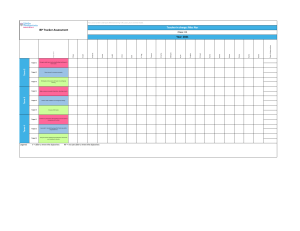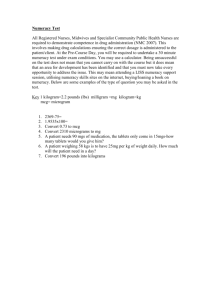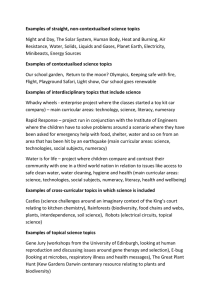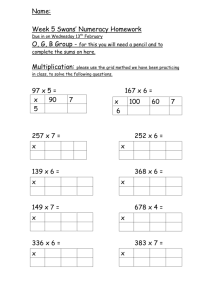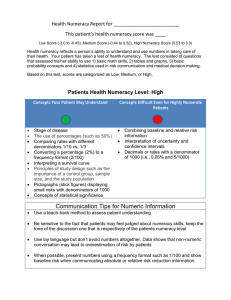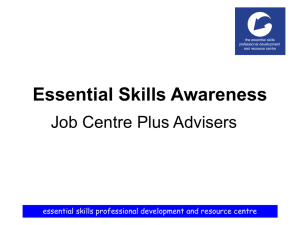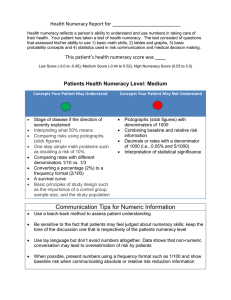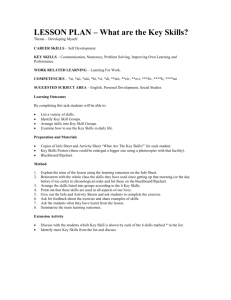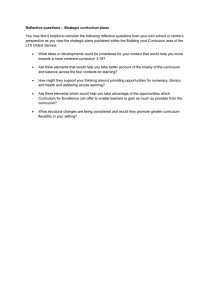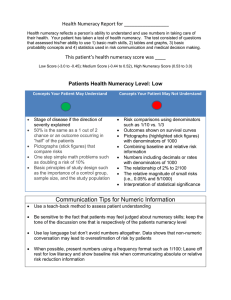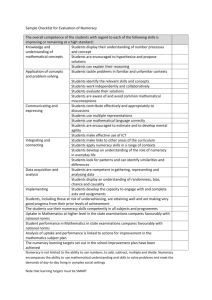Scottish Survey of Literacy and Numeracy (2011 Numeracy event
advertisement
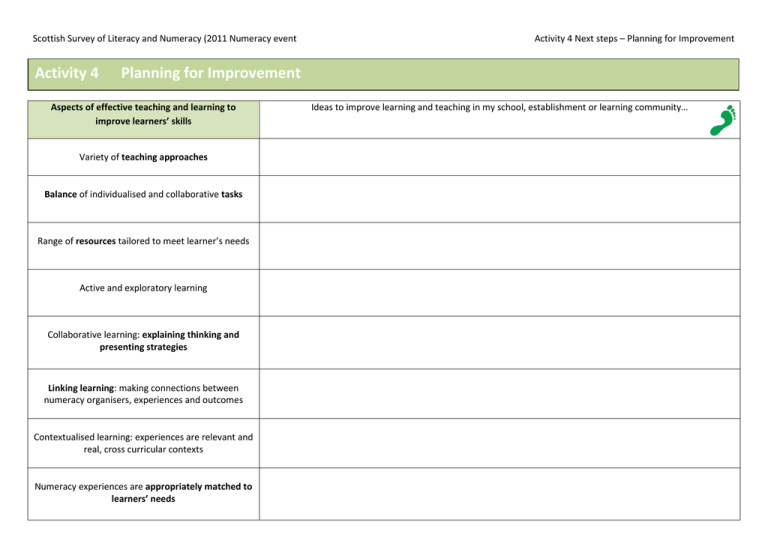
Scottish Survey of Literacy and Numeracy (2011 Numeracy event Activity 4 Activity 4 Next steps – Planning for Improvement Planning for Improvement Aspects of effective teaching and learning to improve learners’ skills Variety of teaching approaches Balance of individualised and collaborative tasks Range of resources tailored to meet learner’s needs Active and exploratory learning Collaborative learning: explaining thinking and presenting strategies Linking learning: making connections between numeracy organisers, experiences and outcomes Contextualised learning: experiences are relevant and real, cross curricular contexts Numeracy experiences are appropriately matched to learners’ needs Ideas to improve learning and teaching in my school, establishment or learning community… Activity 4 Reflect on the suggested strategies for improving learning in numeracy and share good practice that you use or you have seen. demonstration, concrete materials, ICT, peer teaching, real life applications Making/using decimal models Nrich activities to embed problem solving Planning with other departments e.g. St Matthew’s art project related to scale Using Bloom’s taxonomy to develop questioning Collaborative strategies such as “Think, pair, share” Looking at making links when planning eg arrays for multiplication, fractions, square numbers Number lines: introducing fractions, reading scales, creating graphs, estimation and rounding Structure of lessons determined by AifL e.g. traffic lighting Rekenrek to teach number bonds Using apps for PE to look at heart rates, training zones, pacing Earlston NAR example – “Which Container” investigation Technology e.g. Manga High online activities, BBC class clips Outdoor Learning e.g. making a water clock to measure time Financial education e.g. mobile phone deals Sharing with pupils the importance of process Activity 4-exemplars Some examples of strategies and resources collated from information shared by practitioners.
